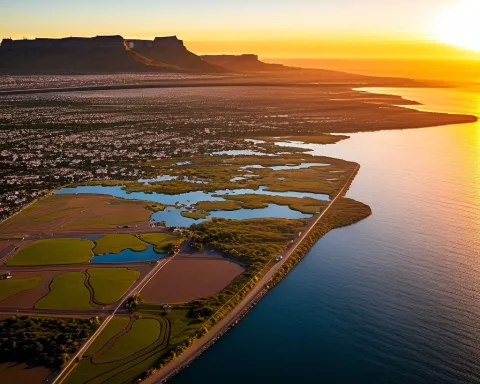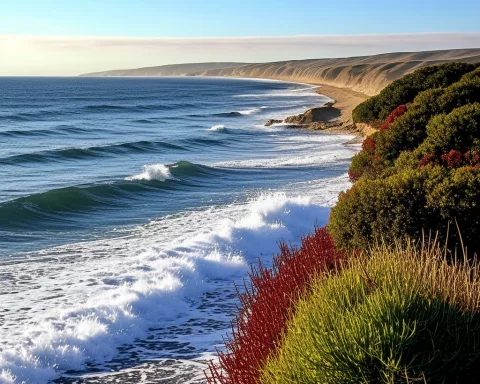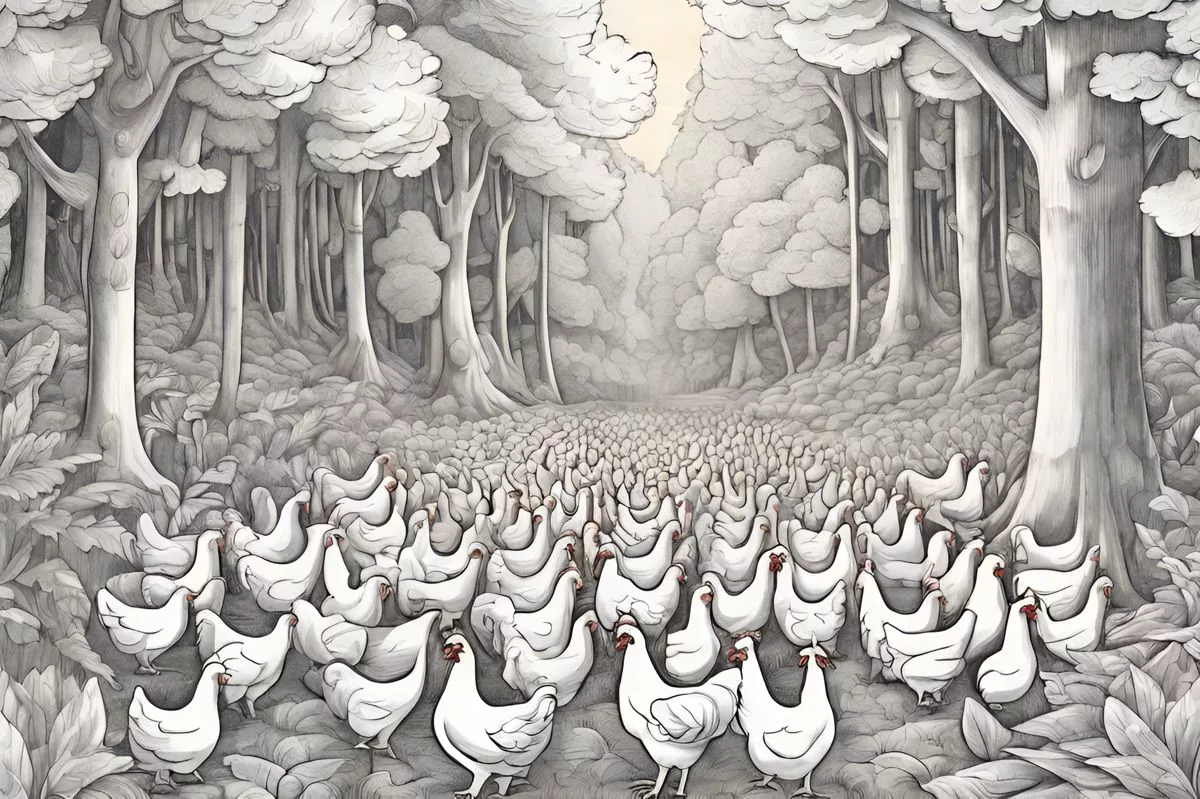South Africa’s National Assembly has approved the World Trade Organization’s Agreement on Fisheries Subsidies, marking a significant milestone in sustainable growth and reinforcing the country’s dedication to environmental conservation. The agreement aims to regulate harmful fisheries subsidies and safeguard global fish supplies, benefiting coastal communities and small-scale fishers who rely heavily on fish as a primary source of protein. This achievement aligns with the first Sustainable Development Goal (SDG) target, making it the first SDG target to be fully accomplished and the first achieved through a multilateral agreement.
South Africa’s National Assembly has endorsed the World Trade Organization’s Agreement on Fisheries Subsidies, marking a significant milestone in sustainable growth. The agreement will regulate harmful fisheries subsidies and safeguard global fish supplies, benefitting coastal communities and small-scale fishers who rely heavily on fish as a primary source of protein. South Africa is set to join the 51 WTO member countries that have officially accepted the pact, reinforcing its dedication to environmental conservation and fulfilling its international obligations.
A Significant Day in South African History
On a memorable Tuesday, the 20th of February in 2024, the South African National Assembly (NA) reached an important landmark. This was achieved by endorsing the Committee on Trade, Industry and Competition’s report on the World Trade Organization’s (WTO) Agreement on Fisheries Subsidies. The ratification signifies a vital turning point in South Africa’s relentless pursuit of sustainable growth, promising to offer both socioeconomic and environmental advantages to its people.
The agreement, which has been under negotiation for over twenty years, will now begin the official ratification process, thanks to the endorsement from the National Assembly. The Minister of Trade, Industry and Competition has been given the mandate to proceed with the first phase of the Agreement’s ratification. Consequently, South Africa is poised to join the 51 WTO member countries that have officially accepted the pact.
This crucial pact, which was born out of a collective international concern for our sea bodies, introduces new standards to regulate harmful subsidies and safeguard global fish supplies. The agreement was finally accepted in 2022 during the WTO Ministers Conference held in Geneva. The deliberations aimed at reducing harmful subsidies that encourage over-fishing, thereby putting the sustainability of the planet’s fish stocks at risk.
South Africa’s Role in the Landmark Agreement
Participation in this international treaty is expected to positively impact groups at risk in South Africa, such as coastal communities and small-scale fishers. The latter, especially, rely heavily on fish as a primary source of protein. The initial endorsement of the WTO Fisheries Subsidies Agreement provides a solid foundation for improving the living conditions of these communities.
The agreement’s significance is further highlighted by its direct contribution to ocean sustainability via the banning of harmful fisheries subsidies. These subsidies are recognized as a primary cause of the drastic reduction in global fish stocks. This groundbreaking achievement aligns perfectly with the first Sustainable Development Goal (SDG) target, making it the first SDG target to be fully accomplished. Interestingly, it’s also the first SDG target achieved through a multilateral agreement and just the second agreement reached within the WTO since its inception.
With the National Assembly’s approval, South Africa is ready to accept and validate the World Trade Organization’s Agreement on Fisheries Subsidies, reinforcing its dedication to sustainable development and environmental conservation. This action demonstrates the nation’s commitment to achieving global goals and is a significant stride towards fulfilling its international obligations.
Engaging with the South African Parliament
As an interesting side note, the grand hall where the discussions take place is known as the “Chamber.” Anyone interested in being a part of these historic events can experience the ambiance of the Chamber in person. This can be achieved by organizing a tour, attending a debate, or seeking more information through the provided contact details.
In focus is Mr. Desmond Lawrence Moela, a representative of the African National Congress from the province of Mpumalanga. Moela represents his party but also serves in the Joint Committee on Ethics and Members Interests and the Portfolio Committee on International Relations and Cooperation.
The Parliament of the Republic of South Africa encourages public engagement and communication. Engage via their contact details or through their various social media platforms. It provides an opportunity to learn more about the nation’s path to sustainable development and the pivotal role of fisheries subsidies in this journey.
The Dawn of a New Era
This era marks a period of changes where the decisions we make today will shape our collective future. Let’s applaud the strides we have made and anticipate the journey ahead where sustainable development is not just an aspiration but a guiding principle in our policies and strategies.
1. What is the Agreement on Fisheries Subsidies?
The Agreement on Fisheries Subsidies is an international treaty that aims to regulate harmful fisheries subsidies and safeguard global fish supplies. It was accepted in 2022 during the WTO Ministers Conference held in Geneva.
2. What is the significance of South Africa’s endorsement of the Agreement on Fisheries Subsidies?
South Africa’s endorsement of the Agreement on Fisheries Subsidies marks a significant milestone in sustainable growth and reinforces the country’s dedication to environmental conservation. It aligns with the first Sustainable Development Goal (SDG) target, making it the first SDG target to be fully accomplished and the first achieved through a multilateral agreement.
3. How will the Agreement on Fisheries Subsidies benefit South African communities?
The Agreement on Fisheries Subsidies is expected to offer socioeconomic and environmental advantages to South African communities, particularly coastal communities and small-scale fishers who rely heavily on fish as a primary source of protein. The initial endorsement of the agreement provides a solid foundation for improving the living conditions of these communities.
4. How can the public engage with the South African Parliament regarding this landmark achievement?
The Parliament of the Republic of South Africa encourages public engagement and communication. Engage via their contact details or through their various social media platforms. It provides an opportunity to learn more about the nation’s path to sustainable development and the pivotal role of fisheries subsidies in this journey.
5. When was the Agreement on Fisheries Subsidies born?
The Agreement on Fisheries Subsidies has been under negotiation for over twenty years and was finally accepted in 2022 during the WTO Ministers Conference held in Geneva.
6. Who is Desmond Lawrence Moela and what role did he play in the endorsement of the Agreement on Fisheries Subsidies?
Desmond Lawrence Moela is a representative of the African National Congress from the province of Mpumalanga. Moela represents his party but also serves in the Joint Committee on Ethics and Members Interests and the Portfolio Committee on International Relations and Cooperation. It is unclear what specific role he played in the endorsement of the Agreement on Fisheries Subsidies.












